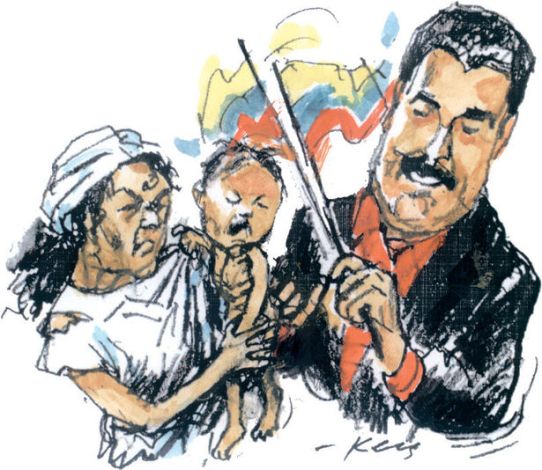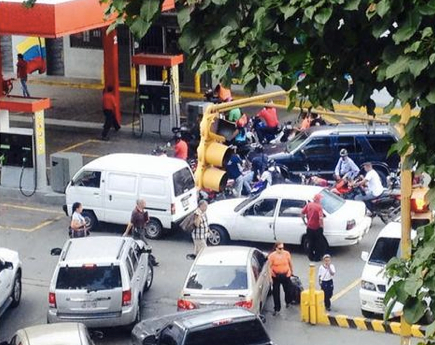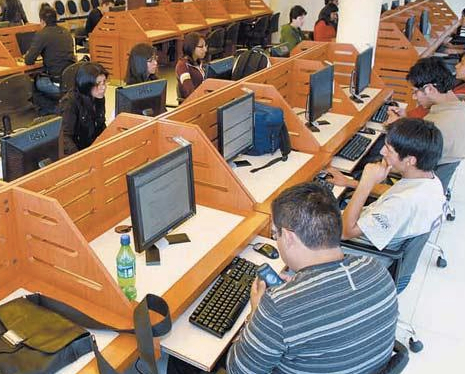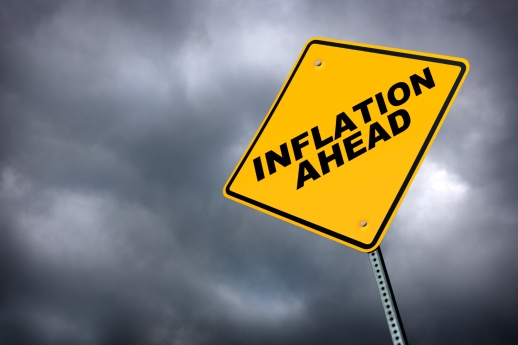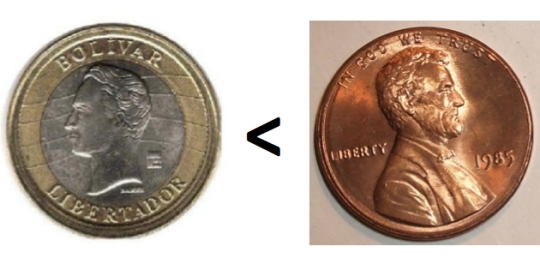Elections are coming, but don’t get too excited yet. The ever affable and joyful Tibisay Lucena came on TV today and revealed to the country and the world, the closely held secret of when Venezuela’s Parliamentary elections would be. And then she, bitterly and acidly, proceeded to blast all of the critics of the Electoral Board, whose pristine record, from not having yet revealed the final vote of the 2007 referendum, to gerrymandering, to rushing to swear in Maduro the day after the questionable election in April 2013, she proceeded to defend. Deep in her troubled mind there must be an excuse for keeping the date secret for so long. For leaking and telling friends of the Government any date from September to December, before letting the “people” know when the elections will finally be. (Hopefully)
So democratic, it makes her democratic soul tremble with joy to make the announcement.
And then we are supposed to believe now that Obama and Shannon had something to do with this. Because somehow, Shannon agreed with the Capo to let elections proceed, in exchange for some mysterious concession. Because equally somehow we are now expected to see Leopoldo Lopez give up his hunger strike, as if holding elections was the only thing he was asking for. Maybe he will, but the reason Lopez is in jail, is because he is a dangerous organizer and leader, who in 2013 put in danger the Government’s phantom vote factor with his use of a strategy to have witnesses in over 90% of all precincts.
Of course, there are other theories, like Diosdado was negotiating for himself, undermining Maduro, who simply sent Delcy Rodriguez, his Foreign Minister, to spy on Diosdado during the meetings. A sort of Agente 007 a la Maxwell Smart and nobody noticed that she was there in order to weave a proper conspiracy theory.
But jeez, nobody seems to find it strange that Shannon would meet with Diosdado (and have pictures taken) if he is being investigated. Yes, there is separation of powers in the US, but there is no lobotomy for thinking strategically. If in a few months an indictment was brought forward against Diosdado, the anti-Hillary, anti-Obama, over half of US politicians, if not more, will raise hell and Shannon would be forced to resign.
All of that for mostly ignored Venezuela, on the third year of a US Presidential term, with an unpopular President?
I find that hard to believe…
But Venezuelans seem to believe everything they are fed these days, particularly those in the opposition, even if Chavistas appear to be quite gullible too. One must look at the way people reacted when some Brazilian newspaper suggested Dilma has called her Foreign Minister to find out about what happened to the Brazilain Senators in Venezuela. Until Itamarati issued the a rather bland press release which was followed by Marco Aurelio Garcia’s statement calling the visit an intromission into Venezuela’s affairs, which was finally crowned by Dilma’s own statement that the visit was “shameful”. and an intromission into, bla, bla, bla. It seemed both statements were written by Maduro’s handlers.
But yes, the elections are coming!
And to guarantee their integrity and the reputation of the Electoral Board, Tibisay will only allow the pure, technical and unbiased observers of Unasur!
What a joy!
Unasur will be here!
The same people that backed the results of the 2013 election and called for an audit that was never fully implemented. For their good job in 2013, they get the exclusive in 2015. They can send as many “observers” as they want. Please no experts, just observers. Just like Chavismo runs things in Venezuela, Unasur is not expected to send anyone with too much knowledge of voting processes, computers, cheating and the like. No, Unasur will send true Foro de Sao Paolo sympathizers, for a taste of revolutionary traveling, as well as arepas and cachapas. If they have time, they can visit some of the revolution’s success projects, wherever they may be ,now that most Barrio Adentro’s modules are shut down.
I mean, it was an exquisite way of proving exactly what Tibisay was blasting her supposed enemies for. Venezuela could have invited the OAS, of which it is a member. Too many “come mierdas” there for Maduro. Or it could have asked Disodado’s best new friends from the US to send four people to observe. But no, in the same announcement of the closely kept secret, she gave exclusivity to an organization that has no record, experience or competence on Electoral matters, other than the infamous 2013 Venezuelan Presidential elections.
Truly, you can’t make stuff like this up. The revolution can always rewrite history any way it wants.
But Tibisay better hope that things go well and the revolution stays in power by whatever means necessary. Because if one day the Electoral registry can be examined or somebody sings to tell us how exactly elections were rigged, Tibisay will have to visit The Hague for violating the rights of most Venezuelans.
She will have to get in line to be tried, but she will be there…But I digress.
And now the strategies begin. I must say I thought that the elections were going to be held sooner (September/October) rather than later (December). Because things are deteriorating fast, very fast. Because right now, there isn´t much of anything to buy or its very expensive. While in Caracas last week, I heard all sort of conspiracy theories about the Government stashing money away to import things ahead of the elections and flood the country with “stuff”.
Really? If the “stuff” will be imported by the Government, you have to be truly gullible to think there will be all sorts of stuff around. They will steal half the money, rob half the stuff and in the end there will be too much of many things and little of a whole bunch of others. And I am not counting what will go to Colombia.
And can the “stuff” I arrive in time for December 6th? Call me skeptical of Chavista “planning”, an oxymoron, if I ever saw one.
Maduro’s plan, according to some sources, is to make the election about the “people”. The “people” are PSUV, and of course, the memory of Chávez, who happened to be elected for the first time on …you guessed it, Dec. 6th.
It will not be about Maduro, the economy, Diosdado or anything like that It will be about “Ustedes”, “el pueblo” and “El Comandante”.
Of course, inflation could screw it all up. I hope it does.

